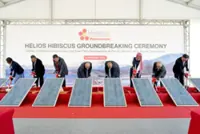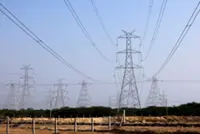KUCHING: Sarawak has set an ambitious target of raising its power generating capacity to 10 gigawatts (GW) by 2030 to meet the robust demand for green energy by new industries like those to be set up in the Sarawak Energy Hub in Bintulu.
The generation of up to 10GW of electricity will primarily come from renewable sources such as hydropower, solar, gas turbines and biomass energy, according to Sarawak Premier Tan Sri Abang Johari Tun Openg.





